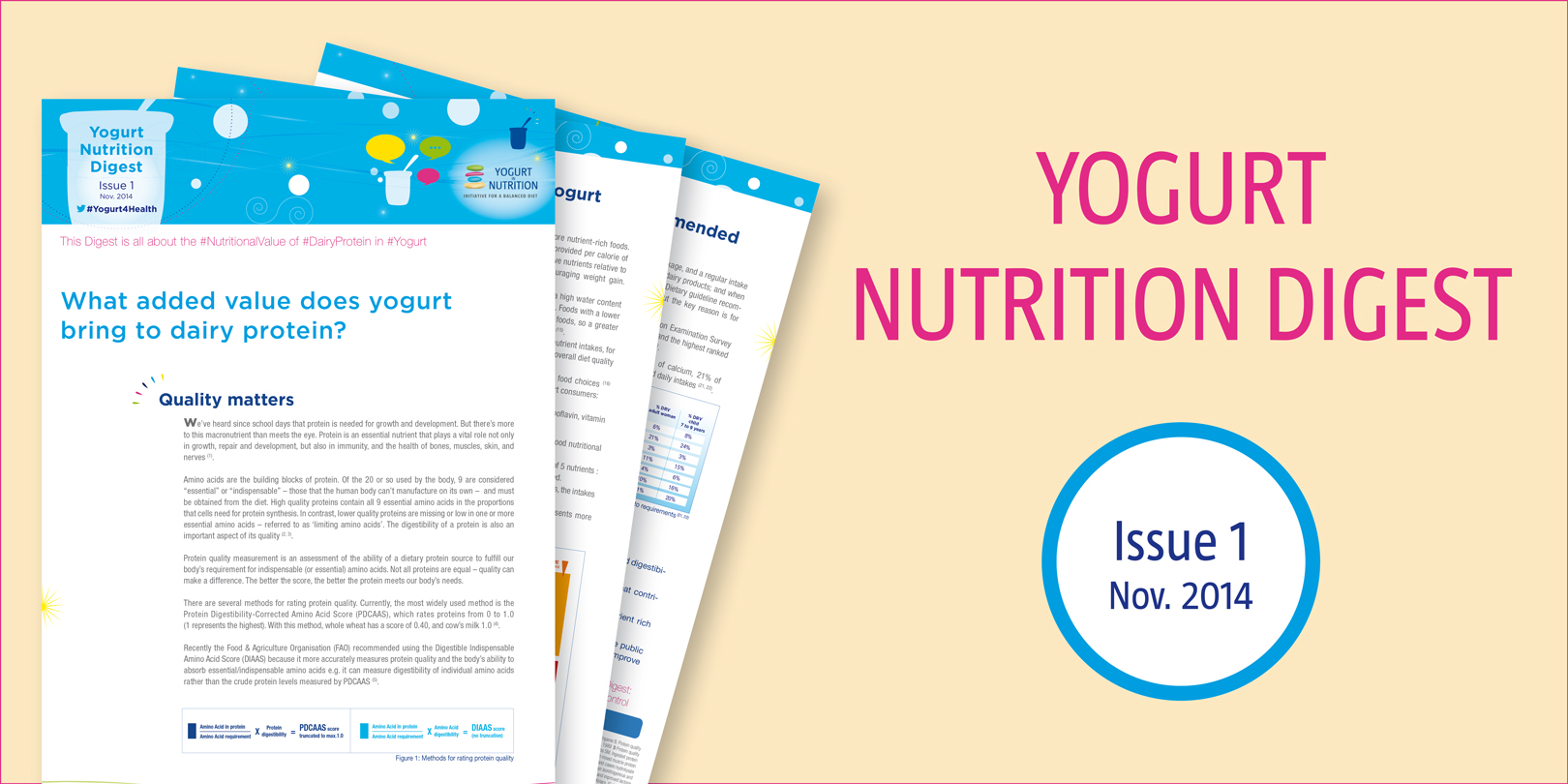Dairy protein: Why is it recommended worldwide?
Dairy foods provide high quality protein wrapped up in a robust nutrient package, and a regular intake can be a marker for diet quality. Most countries recommend consumption of dairy products; and when amounts are specified, 2 or 3 servings per day are typically recommended (18). Dietary guideline recommendations for dairy products are based partly on culture and availability, but the key reason is for meeting nutrient requirements (18).
- For example, amongst US adults, the 2003-2006 National Health and Nutrition Examination Survey (NHANES) found that milk was the 4th highest ranked food source of protein, and the highest ranked food source of calcium (22.5%), vitamin D (45.1%), and potassium (9.6%) (19) (20).
- In France, 125ml of natural yogurt provides, amongst other nutrients, 20% of calcium, 21% of vitamin B2, 11% of vitamin B12, 16% of phosphorus of an adult’s recommended daily intakes (21) (22).




